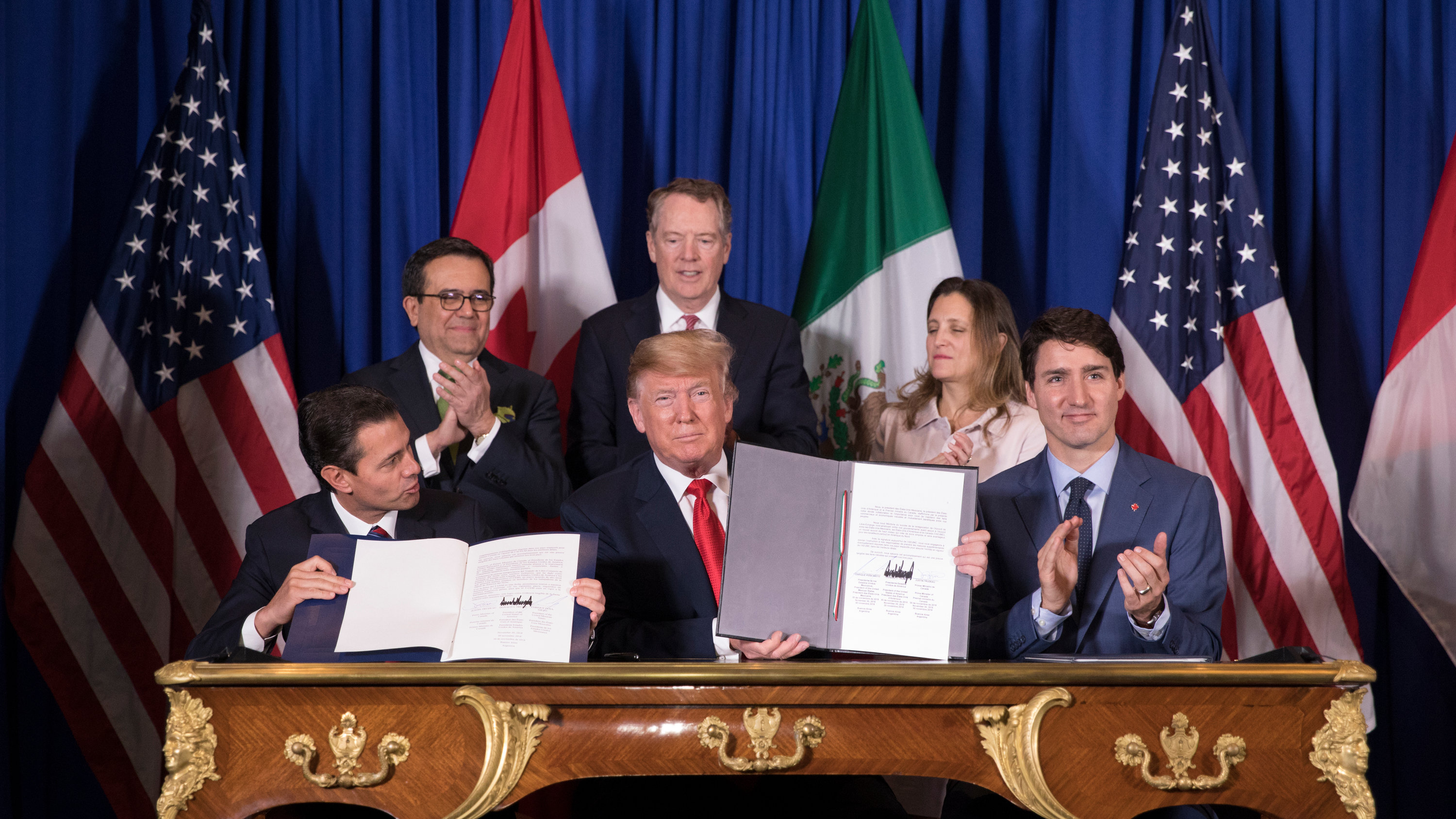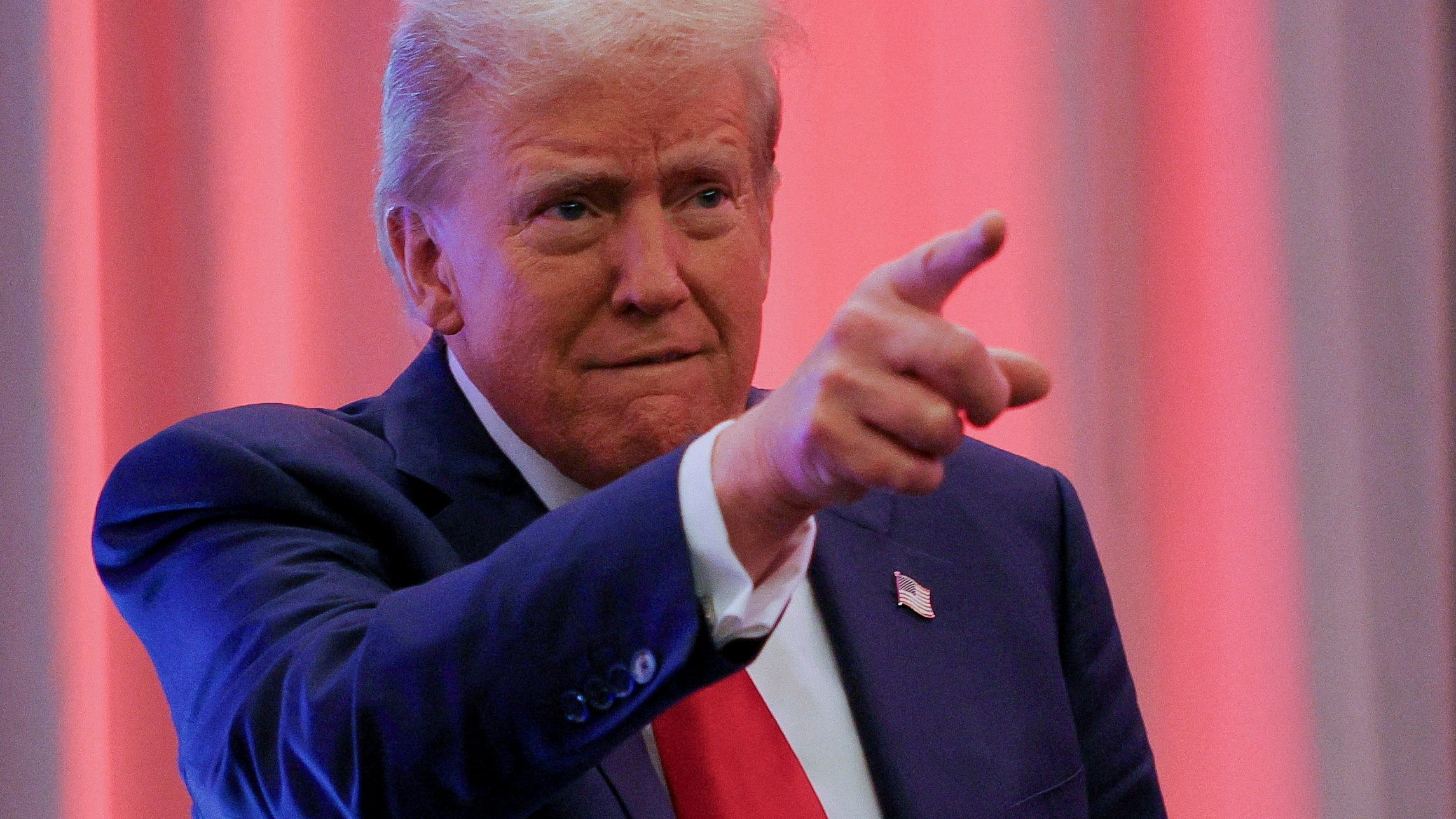Economic Uncertainty: CEOs Cite Trump Tariffs As Major Threat

Table of Contents
The Lingering Impact of Trump Tariffs on Businesses
The implementation of Trump tariffs, initially aimed at protecting domestic industries and leveraging trade negotiations, had far-reaching and largely unforeseen negative consequences. The goal was to level the playing field and reduce the US trade deficit, but the reality proved far more complex. Industries like manufacturing and agriculture were particularly hard hit.
The initial imposition of tariffs led to a cascade of negative effects:
- Increased production costs: Tariffs increased the price of imported raw materials and components, directly impacting production costs for numerous businesses. This made US-made goods less competitive in both domestic and international markets.
- Supply chain disruptions: The imposition of tariffs created significant disruptions to established global supply chains. Businesses struggled to source materials efficiently, leading to delays and increased costs.
- Reduced consumer purchasing power: Higher prices for imported goods, driven by tariffs, reduced consumer purchasing power, leading to decreased demand and impacting overall economic growth.
- Retaliatory tariffs from other countries: Many countries responded to the US tariffs with their own retaliatory measures, creating a trade war that harmed businesses on both sides. This tit-for-tat escalation amplified the negative effects.
For example, the tariffs on steel and aluminum significantly impacted US manufacturers reliant on these imported materials, resulting in job losses and plant closures in several states. The agricultural sector also suffered greatly from retaliatory tariffs imposed by China, leading to significant losses for farmers. Data from the Peterson Institute for International Economics shows a demonstrable link between these tariffs and reduced economic growth.
CEO Perspectives and Survey Data
Numerous surveys and reports reveal widespread CEO concern regarding the lingering impact of Trump tariffs. These tariffs are cited as major factors influencing investment decisions, hiring plans, and overall business outlook. The impact is particularly pronounced in sectors heavily reliant on international trade, such as manufacturing, agriculture, and technology.
Key concerns highlighted by CEO surveys include:
- Reduced business investment due to uncertainty: The unpredictable nature of trade policy under the Trump administration created an environment of uncertainty, discouraging investment in expansion and modernization.
- Hesitation in hiring due to increased costs and market volatility: Increased costs from tariffs and market volatility led to hesitation in hiring, hindering job growth and economic expansion.
- Shifting of production to other countries: Many companies responded to tariffs by shifting production to countries with lower costs and more predictable trade policies. This resulted in job losses in the US and strengthened competing economies.
- Pressure on profit margins: The increased costs associated with tariffs directly squeezed profit margins, impacting the profitability and sustainability of numerous businesses.
Quotes from CEOs expressing these concerns can be found in various business publications and financial news outlets, emphasizing the widespread anxiety caused by the economic uncertainty surrounding these trade policies.
The Broader Economic Uncertainty Fuelled by Trade Wars
Trump tariffs didn't just affect specific industries; they contributed to a broader atmosphere of economic uncertainty. This uncertainty rippled through global trade and investment, impacting financial markets and long-term strategic planning.
The consequences of this broader economic uncertainty include:
- Increased volatility in financial markets: The trade war created significant uncertainty, leading to increased volatility in stock markets and other financial instruments.
- Impact on global supply chains: Disruptions to global supply chains caused delays, increased costs, and reduced efficiency across various sectors.
- Uncertainty about future trade policies: The unpredictable nature of trade policy under the Trump administration created uncertainty about future trade relations, hindering long-term planning and investment.
- Difficulty in long-term strategic planning: The instability created by the trade wars made long-term strategic planning exceedingly difficult for businesses, impacting investment and growth.
Numerous economic models and analyses demonstrate a clear link between trade wars and reduced economic growth, confirming the negative impact of these policies.
Potential Solutions and Mitigation Strategies
Mitigating the ongoing effects of Trump tariffs requires a multi-pronged approach. Policy solutions could include renegotiating existing trade agreements, promoting free and fair trade, and providing targeted support to affected industries. Businesses can also implement strategies to navigate this economic uncertainty:
- Diversification of supply chains: Reducing reliance on a single source of materials by diversifying supply chains can mitigate the impact of future trade disruptions.
- Negotiation and lobbying efforts: Businesses can engage in active negotiation and lobbying efforts to influence trade policy and advocate for their interests.
- Focus on innovation and efficiency: Investing in innovation and improving efficiency can help businesses remain competitive despite increased costs.
- Government support and trade agreements: Government support programs and the establishment of stable, predictable trade agreements can help mitigate the impact of trade wars and encourage economic growth.
Navigating Economic Uncertainty in the Shadow of Trump Tariffs
In conclusion, the lingering effects of Trump tariffs have had a significant negative impact on the US economy, fueling economic uncertainty and causing widespread anxiety among CEOs. The increased costs, supply chain disruptions, and retaliatory tariffs have created a challenging environment for businesses. These lingering effects of Trump tariffs substantially contribute to present-day economic uncertainty. Understanding the lasting impact of Trump tariffs is crucial for navigating the current economic uncertainty. Stay informed and demand policies that foster stable global trade, mitigating the continued negative impact of these trade disputes and fostering a more predictable and prosperous economic future.

Featured Posts
-
 Ecbs View On The Disinflationary Impact Of Trumps Tariffs Holzmanns Analysis
Apr 26, 2025
Ecbs View On The Disinflationary Impact Of Trumps Tariffs Holzmanns Analysis
Apr 26, 2025 -
 The Rise Of Nepotism Babies In Television Fact Or Fiction
Apr 26, 2025
The Rise Of Nepotism Babies In Television Fact Or Fiction
Apr 26, 2025 -
 Shedeur Sanders Nfl Draft Potential A Data Driven Analysis
Apr 26, 2025
Shedeur Sanders Nfl Draft Potential A Data Driven Analysis
Apr 26, 2025 -
 Gold Price Record Rally Bullion As A Trade War Safe Haven
Apr 26, 2025
Gold Price Record Rally Bullion As A Trade War Safe Haven
Apr 26, 2025 -
 Jorgensons Paris Nice Victory A Dominant Performance
Apr 26, 2025
Jorgensons Paris Nice Victory A Dominant Performance
Apr 26, 2025
Latest Posts
-
 Celebrity Style Evolution Ariana Grandes Professional Hair And Tattoo Makeover
Apr 27, 2025
Celebrity Style Evolution Ariana Grandes Professional Hair And Tattoo Makeover
Apr 27, 2025 -
 The Professionals Behind Ariana Grandes Dramatic Hair And Tattoo Change
Apr 27, 2025
The Professionals Behind Ariana Grandes Dramatic Hair And Tattoo Change
Apr 27, 2025 -
 Ariana Grandes Hair And Tattoo Transformation Professional Insights Into Celebrity Styling
Apr 27, 2025
Ariana Grandes Hair And Tattoo Transformation Professional Insights Into Celebrity Styling
Apr 27, 2025 -
 Understanding Ariana Grandes Style Evolution The Role Of Professional Hair And Tattoo Experts
Apr 27, 2025
Understanding Ariana Grandes Style Evolution The Role Of Professional Hair And Tattoo Experts
Apr 27, 2025 -
 Ariana Grandes Bold New Look Exploring The Professionalism Behind Her Hair And Tattoo Choices
Apr 27, 2025
Ariana Grandes Bold New Look Exploring The Professionalism Behind Her Hair And Tattoo Choices
Apr 27, 2025
